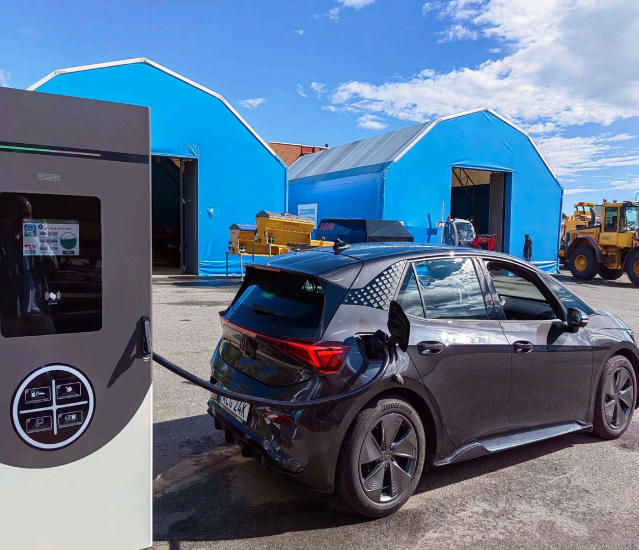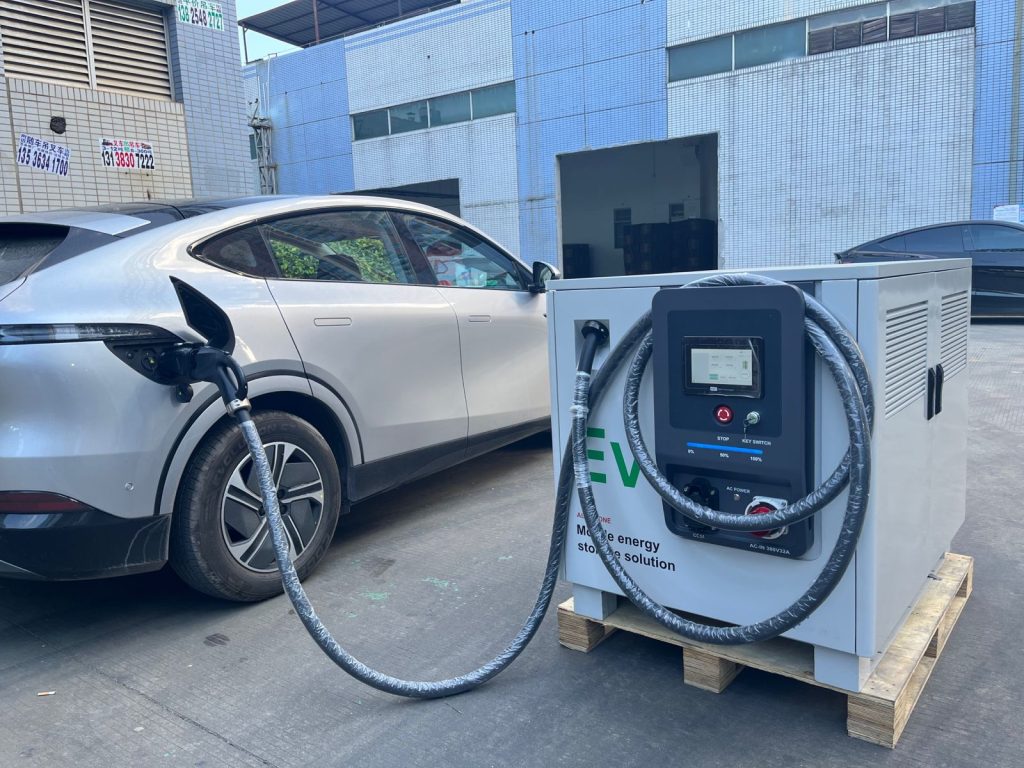
As the world shifts towards a more sustainable future, the electrification of transportation is playing a pivotal role in reducing carbon emissions and combating climate change. Electric vehicles (EVs) offer a cleaner alternative to traditional gasoline-powered cars, but their widespread adoption hinges not only on the vehicles themselves but also on the infrastructure supporting them, particularly charging stations.
Mobile EV charging stations have emerged as a flexible and dynamic solution to address the evolving needs of electric vehicle owners. These portable units can be deployed in various locations, providing convenient charging options where fixed infrastructure is lacking or insufficient. However, what sets some of these mobile charging stations apart is their integration with renewable energy sources, such as solar or wind power. Let’s delve into the potential of this innovative approach to provide clean and sustainable charging solutions.
Harnessing Solar Power for Mobile EV Charging
Solar energy is abundant, renewable, and environmentally friendly, making it an ideal complement to electric vehicle charging. Mobile EV charging stations equipped with solar panels can tap into this clean energy source to power the charging process. These solar-powered units can be deployed in parking lots, outdoor events, or remote locations, providing off-grid charging capabilities while minimizing reliance on fossil fuels.
One of the key advantages of solar-powered mobile charging stations is their ability to operate autonomously, without the need for grid connection. This makes them particularly well-suited for off-grid applications, such as outdoor events, festivals, or emergency response situations. By harnessing the power of the sun, these units offer a sustainable charging solution that reduces both costs and carbon emissions.
Additionally, solar-powered mobile charging stations can serve as a visible symbol of sustainability, raising awareness and promoting the adoption of renewable energy technologies. They showcase the potential for clean energy to power our transportation systems, helping to drive the transition towards a greener future.
Tapping into Wind Energy for On-the-Go Charging
In addition to solar power, wind energy presents another promising avenue for powering mobile EV charging stations. Wind turbines can be integrated into these units, harnessing the kinetic energy of the wind to generate electricity for charging electric vehicles. This approach is particularly well-suited for locations with consistent wind patterns, such as coastal areas or open plains.
Wind-powered mobile charging stations offer several advantages, including high energy efficiency and minimal environmental impact. Unlike fossil fuel-based generators, wind turbines produce electricity without emitting greenhouse gases or consuming finite resources. This makes them a clean and sustainable option for powering EV charging infrastructure, aligning with the goals of reducing carbon emissions and mitigating climate change.
Furthermore, wind-powered mobile charging stations can enhance energy resilience by diversifying the sources of electricity generation. In regions prone to grid disruptions or power outages, these units can provide a reliable charging solution, ensuring uninterrupted access to clean energy for electric vehicle owners.
Challenges and Opportunities
While the integration of renewable energy sources into mobile EV charging stations holds immense promise, it also presents challenges that must be addressed. Factors such as intermittency, energy storage, and scalability require careful consideration to ensure the reliability and effectiveness of these systems. Additionally, regulatory frameworks and incentive programs play a crucial role in promoting the deployment of renewable energy-powered charging infrastructure.
Despite these challenges, the potential benefits of mobile EV charger integration with renewable energy sources are clear. By harnessing the power of the sun and wind, these units offer clean, sustainable, and accessible charging solutions for electric vehicles, contributing to a greener and more resilient transportation ecosystem.
In conclusion, the integration of renewable energy sources into mobile EV charging stations represents a significant step towards achieving a more sustainable future. By leveraging solar and wind power, these units provide clean and accessible charging options, helping to reduce carbon emissions, promote renewable energy adoption, and drive the transition towards a greener transportation system. As technology continues to advance and regulatory support grows, the potential for renewable energy-powered mobile charging stations to shape the future of electric mobility is truly electrifying.

Nalina Huang
Renewable Energy Engineer who is responsive for EV Mobile Charging Solution, predesign, proposal elaboration, and project follow-up. Expereince in topics ranging from Electric Vechiles, Charging Renewable Energy, Market Analysis, and Project Management.



